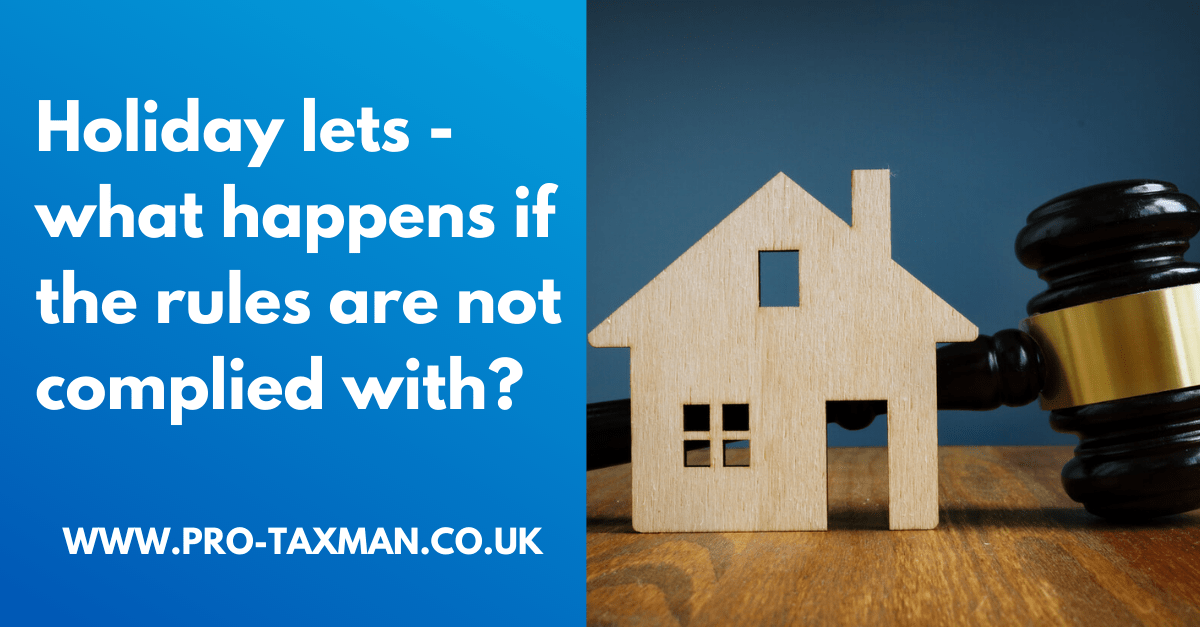When it comes to letting property, not all are equal when it comes to tax – lettings that qualify as ‘furnished holiday lettings’ (FHLs) benefit from special tax rules. The operation of a FHL is deemed to be a business rather than a property income investment and therefore the usual business income and expenditure accounts are prepared. This treatment creates a number of tax benefits for the FHL owner including tax relief for pension contributions, relief for loans to traders and of various capital gains tax reliefs (e.g. Rollover relief, Gift relief, Business Asset Disposal Relief).
Conditions
There are specific conditions required for a let to qualify as a FHL, not least that the property must be fully furnished such that anyone moving into the property must be able to live there without having to buy any additional furniture/furnishings. In addition, the accommodation must be ‘available’ for short-term letting for 210 days in any one tax year and be let for 105 days of the year. Long-term lets should not exceed 155 days (‘occupation’ condition) in any one tax year and the property should not normally be let for a continuous period of 31 days in any period of 155 days. ‘Averaging’
As a result of the various lockdown measures implemented by the government due to the pandemic, some holiday let businesses may not have met the various occupancy levels required to qualify as a FHL. If that was the case then there is the option to make an averaging election where a landlord has more than one holiday let and the letting condition is met by some but not all of the properties in the portfolio. The test is applied by reference to the average occupancy rate for all properties, rather than individually for each.
‘Period of grace’
If the landlord has one holiday let only or an averaging election does not help there is a potential solution in the form of a ‘Period of Grace’ election. Under this election should a property qualify for FHL in one accounting period or tax year out of every three but does not qualify in the next or next two years then the election treats the year that does not qualify as being included in the calculation.
Making an election Either or both of the FHL income tax elections are made on the property income pages of the self-assessment tax return (or separately in writing) up to one year after 31 January following the end of the tax year. That gives the landlord until
31 January 2024 to claim for the 2021/22 year.
Conditions not met
If the conditions are not satisfied, the property is taxed under the normal rental accounting rules rather than the more beneficial FHL business rules. A landlord will not be able to benefit from pension contribution reliefs (apart from the £3,600 net of tax relief permitted to all taxpayers), certain capital gains tax reliefs or be able to claim capital allowances for such items as furniture, fixtures and equipment. Should a landlord find him or herself in a situation where there is a danger of the FHL conditions not being satisfied then there is always the possibility of asking another member of the family to stay for the prerequisite number of days but they will have to pay market rent for the occupancy rules to apply. Stays by the owner do not count towards the occupancy limit.
Losses
FHL losses cannot be offset in any year against any other type of income, instead such losses are carried forward to be offset against any future profit.
As a final point – Neither Class 2 nor Class 4 NIC’s are due on profits from FHL’s as the property business is treated as an investment and not a trade.
Need professional accounting service or accounting advice? Contact us to book a 15-min Free Consultation with us today.
To find out more please follow us on Facebook, Twitter, or LinkedIn. Feel free to contact us on 0333 006 4847 or request a call back by texting 075 6464 7474

